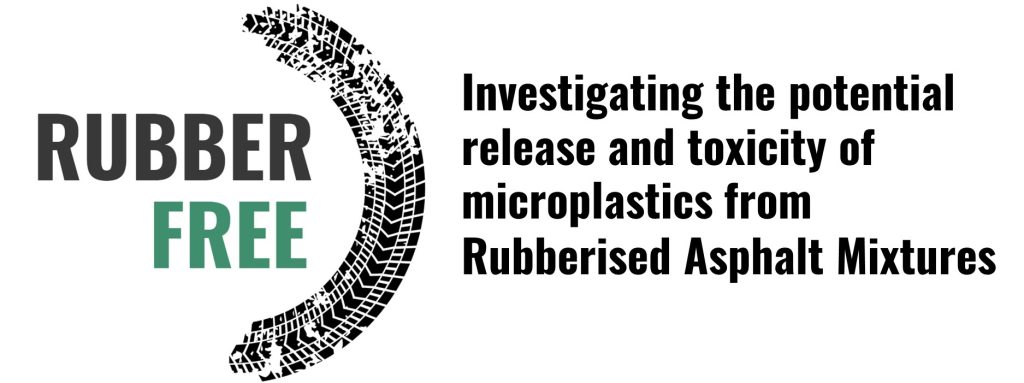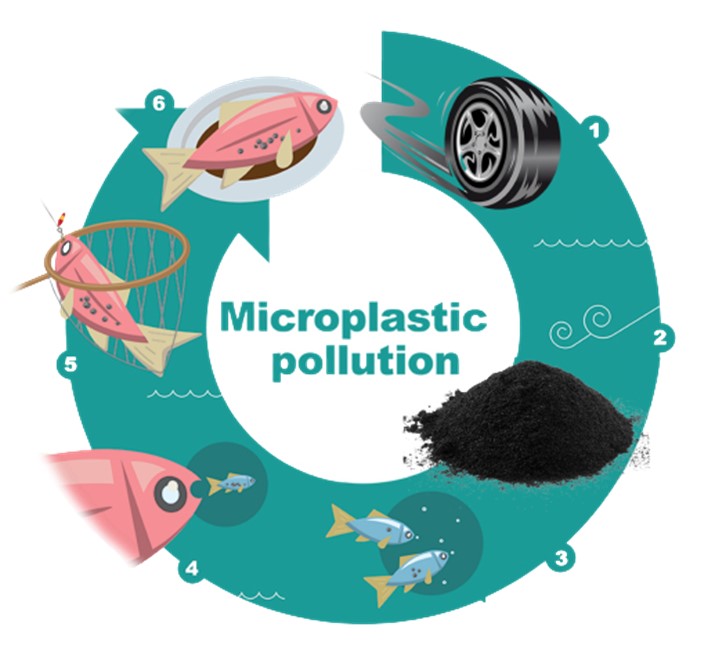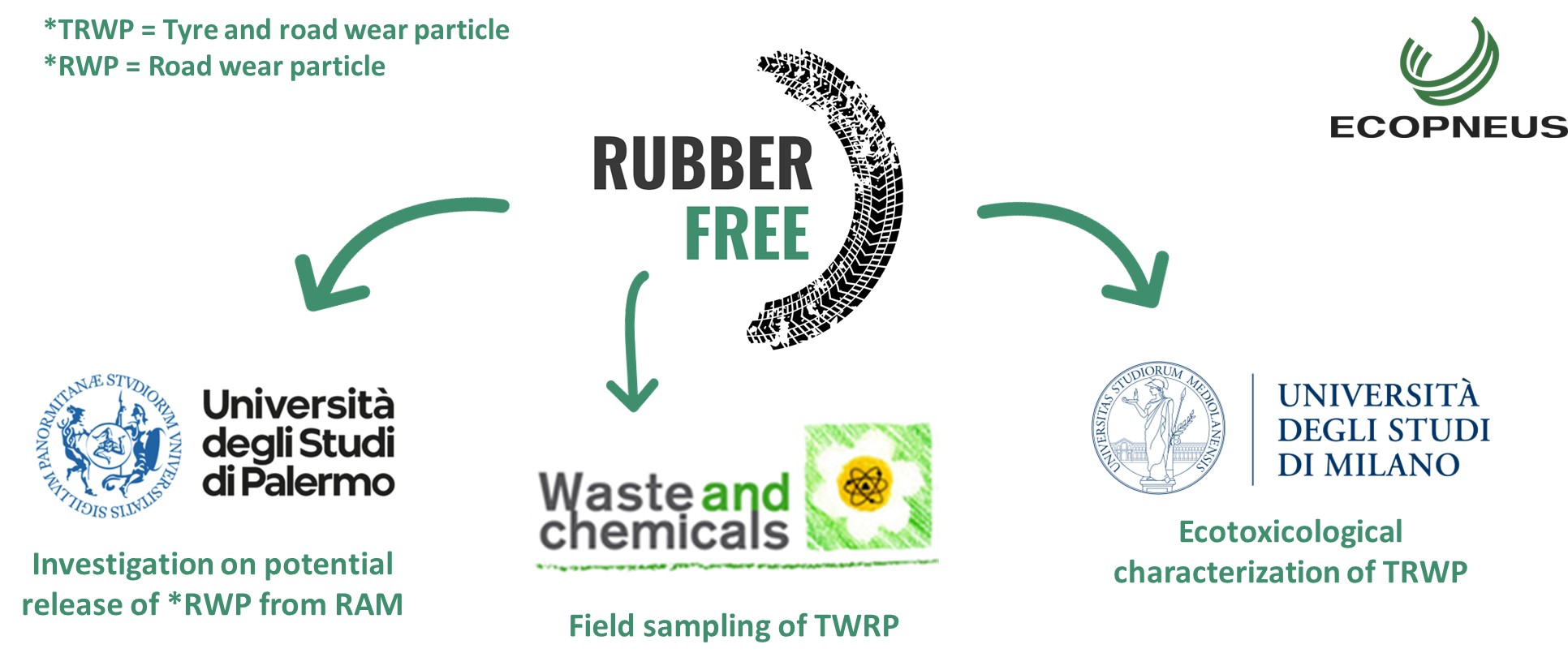
Although the environmental impact of microplastics (MPs) has not yet been entirely understood, MPs are known to cause pollution by entering natural ecosystems.
The harmful effects of MPs are related to their bioavailability in the environment, such as in aquatic and marine ecosystems.
Plastics degrade slowly thus MPs have a high possibility of ingestion by many organisms, with some toxic effects at different levels of biological organization

Is it possible that TRWPs (Tire and Road Wear Particles) are released into the environment due to the abrasive action of the tyres, increasing the total quantity of microparticles already generated by tires?

is developed by
Are RAMs releasing MPs???
Rubberised Asphalt Mixtures (RAM) are widely recognised as an optimal solution to enhance road pavement performance and its durability but also to tackle the environmental impact by reusing end of life tyres.
Nevertheless, road authorities preserve environmental concerns regarding the potential release of microplastics (MPs) such as TRWP due to the abrasion and degradation of RAM.

RUBBERFREE aims
- to characterize TRWPs (Tire and Road Wear Particles) generated by low noise emissions road surfaces modified with rubber powder from tyres.
- To develop a novel procedure for producing RWPs at laboratory scale
- to evaluate the ecotoxicological effects of TRWPs from conventional and rubberized asphalts on a freshwater biological model
- to assess if there are significant differences between the TRWPs generated by conventional asphalts compared to “rubberised” ones which are attributable to the presence of rubber powder in the wearing course.





